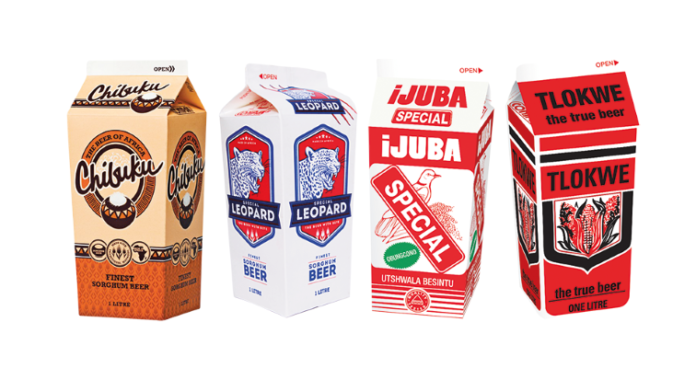Nampak Liquid Carton’s Managing Director, Raymond Dube highlights how traditional African beer – or sorghum beer – continues to play a vital role in African culture, both in South Africa and across the continent.
Africans were brewing beer long before the arrival of European settlers, and traditional brewing has remained integral to African history and culture. Archaeologists estimate that the cultivation of sorghum – which is a type of grass – dates back 5,000 years to the ancient Kingdom of Kush (now present-day Sudan), arguably the first African civilization. Later, as the Bantu-speaking tribes migrated south, they brought the art of brewing sorghum with them.
Sorghum beer is considered the traditional beer of Africa: from the original Chibuku in Zambia to Pito in Ghana, it’s been brewed across the continent for thousands of years. In South Africa, we have umqombothi, made from maize, malted sorghum and water. The sorghum in umqombothi gives it its characteristic, lingering sour aftertaste. The taste that reminds us of the joy of a wedding, the sadness of a funeral, and the communion with amadlozi (the ancestors).
A unique carton for a uniquely African beer
Traditional sorghum beer is drunk while still fermenting – it’s said that the more foam around a container, the fresher it is! Frothing and foaming make sorghum special; it’s also why Nampak’s conical carton – which is packaging specific for commercially brewed sorghum beer – allows the foam to expel safely. The carton’s gable-top ‘chimney’ vents allow gas, given off by the live fermentation after packing, to escape, preventing the pack from bursting.
Home brewed sorghum beer on the other hand, is fermented in everything from clay pots in backyards to open plastic buckets in shebeens, with hygiene a potential issue in the process. This was put in the spotlight during South Africa’s Covid-19 alcohol bans, which forced many people to brew their own beer – sometimes with lethal consequences. In informal brewing environments, sorghum beer can be given an extra ‘kick’ with methylated spirits and even battery acid.
That’s why packaging, like liquid beverage cartons, that’s not only safe and tamper-proof, but maintains the beer’s freshness and live fermentation process is essential to keep this African tradition going strong.
“For this is Africa”
Of course, the world changes and traditions shift – and sorghum is seeing a trendy uptick. Sorghum is seen as a healthier alternative to commercial beer, as it’s gluten-free, high in antioxidants that can prevent cardiovascular disease and certain cancers, and it has a lower alcohol content.
Commercially brewed and packaged sorghum beer is prolific around Africa in countries like Zambia, Malawi, Zimbabwe, Tanzania and Botswana. In South Africa, United National Breweries has long been the stalwart of professionally brewed commercial sorghum beer. UNB (United National Breweries) came about as a merger between SABMillers’ Traditional Beer Investment division and National Sorghum Breweries.
More recently, real interest has been shown in the growth of this sector as the market craves a more affordable, traditional alcoholic beverage, with more breweries set to open.
My Urban Africa is an up-and-coming brewery based in Gqeberha started by Wes Tiedt and Derek Perryman who have long been involved in the sorghum beer industry. After having consulted within the industry, they saw an opportunity in the market and decided to start their My Urban Africa venture. MUA offers BRA’s, a new brand of commercially made traditional beer brewed locally in Gqeberha and readily available. BRA’s is packaged in cartons which is not only safe and tamper-proof but maintains the beer’s live fermentation process which is essential to keeping the African tradition going strong.
Whether sorghum beer becomes the next bar trend remains to be seen, but the traditional African beer isn’t going anywhere. In 2017, journalist Fred Kumalo wrote a column about the fraught history and possible fate of umqombothi. He puts it aptly: “Mr Sorghum Mqombothi, let them froth at the mouth in their denunciation of you as a backward brew, but you and I know that when the chips are down, they always come back to you. Behind those closed doors, away from the chandeliered houses in the fashionable suburbs, they continue to draw sustenance from you. For this is Africa.”









